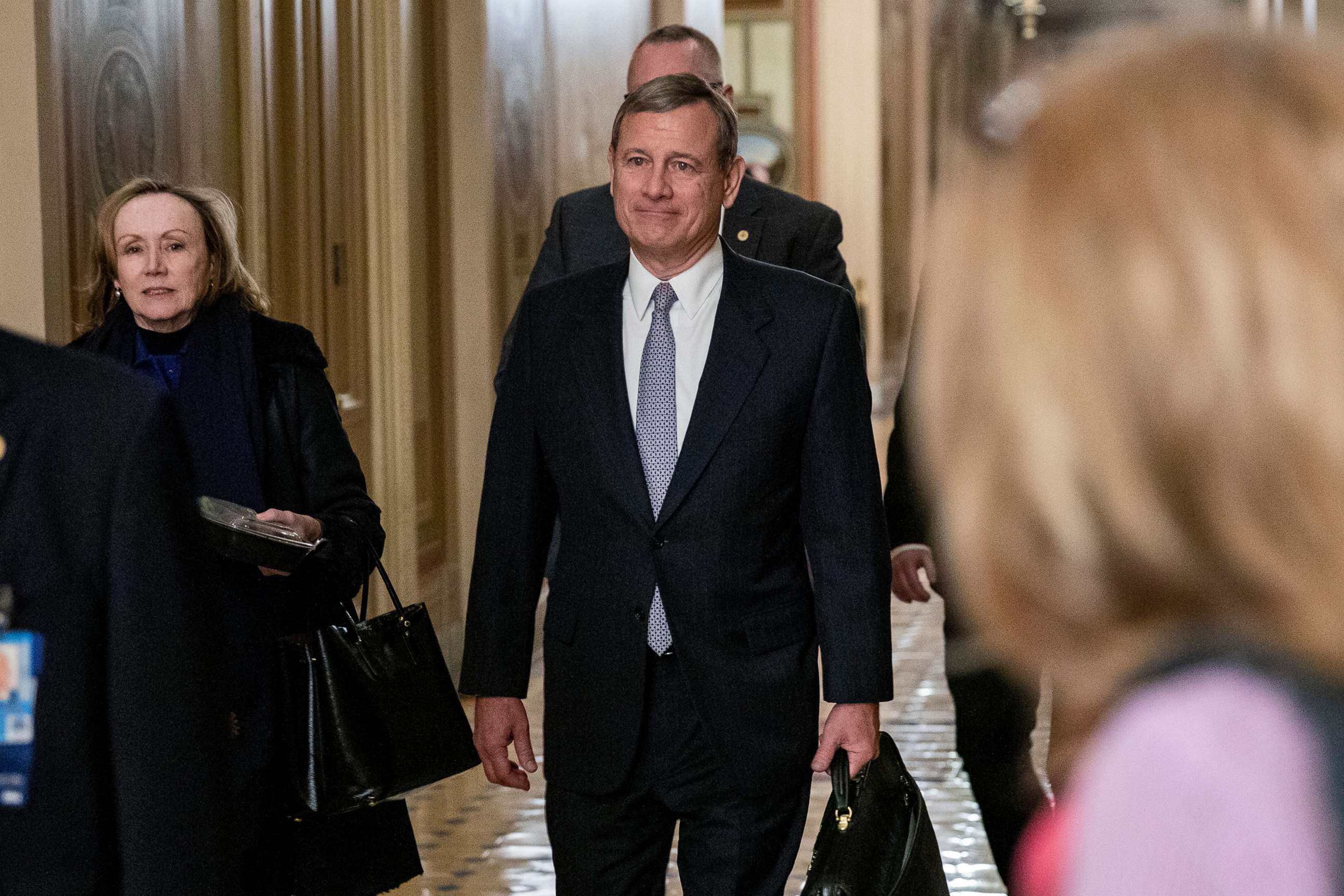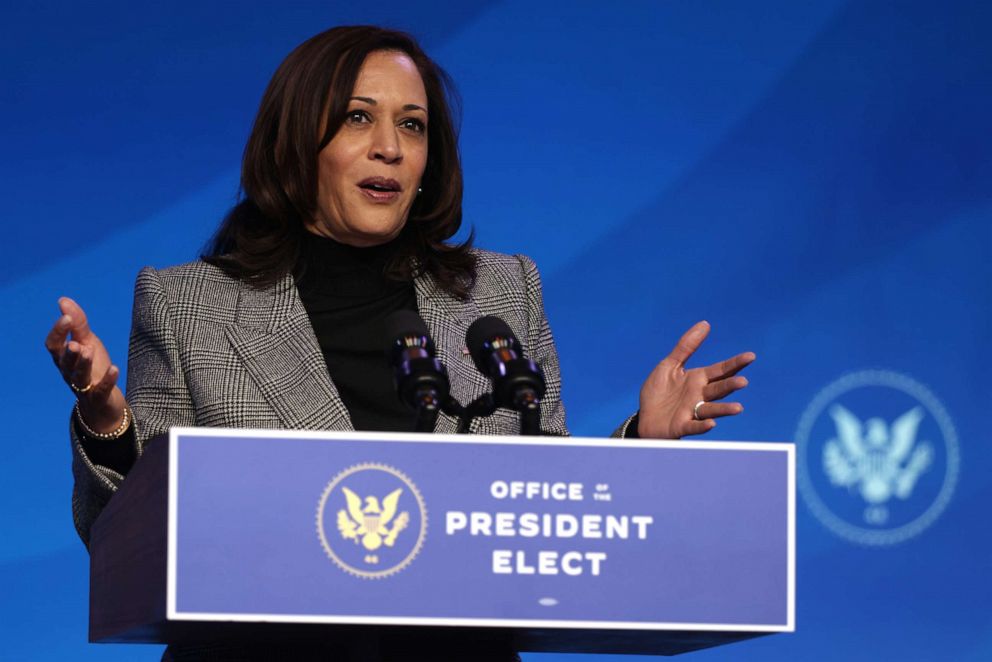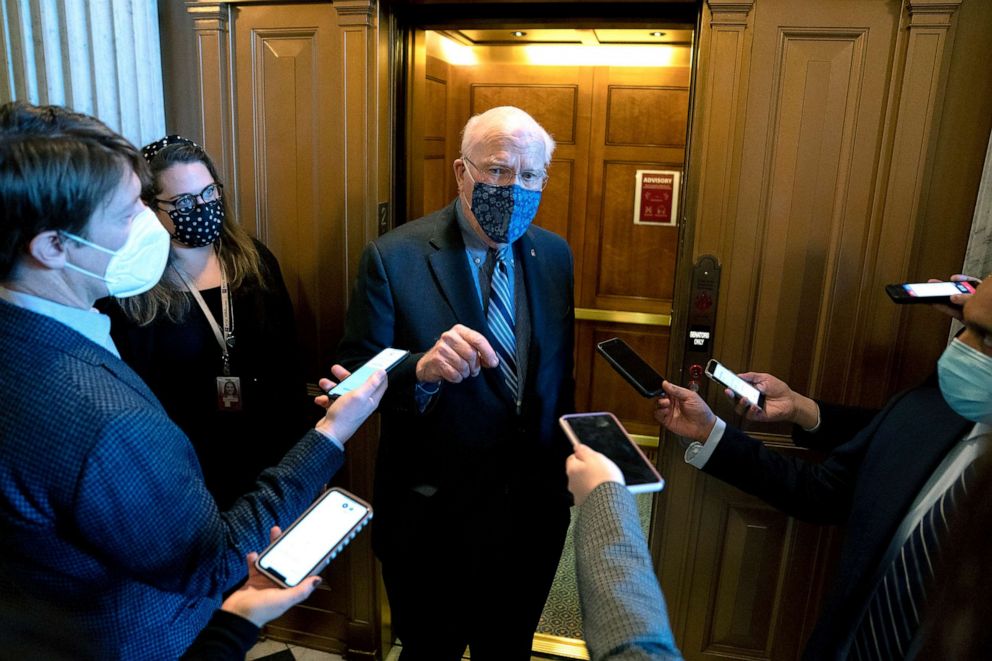In 2nd Trump impeachment trial, will Chief Justice John Roberts preside?
Vice President Kamala Harris and Sen. Patrick Leahy are seen as possibilities.
Who will preside over the second Senate impeachment trial of Donald Trump remains a key open question as lawmakers prepare to begin the unprecedented proceeding as soon as Inauguration Day.
The U.S. Constitution says that the Chief Justice of the Supreme Court "shall preside" over trials of the President of the United States, but it does not specify what happens if the president has left office. No ex-president has ever faced a Senate trial.
The question is complicated by a legal text open to interpretation, and there is no consensus among constitutional scholars or impeachment experts.
"He was president when he committed these offenses. He was president when he was impeached," said Harvard law professor Lawrence Tribe. "The whole point of having the chief justice preside in these extremely important presidential cases is because those are the ones that most require the legitimacy, the impartiality, the neutrality and non-partisan character of an independent judge."

Sources tell ABC News that it will be up to congressional leadership to make the final decision. They could invite Chief Justice John Roberts, who presided over Trump's first Senate impeachment trial, to return to the largely ceremonial role, or they could look elsewhere.
If an invitation is extended to Roberts, his participation would likely hinge on his own interpretation of the law, they said.
There is also the chance Roberts may choose to recuse from a Senate trial if Trump or his legal team were to challenge the constitutionality of the proceedings in federal court -- a scenario in which Roberts and the justices could ultimately be asked to rule.
A spokeswoman for the chief justice said he had no comment. Senate leaders Chuck Schumer and Mitch McConnell have not publicly addressed the format of a trial.

Last week, in a memo to Senate Republicans obtained by the Washington Post, McConnell expressed some doubt about Roberts' participation, writing: “Whether the Chief Justice would actually preside over the trial after President Trump ceases to be President on January 20, however, is unclear," he said, according to the paper.
In Roberts' absence, the responsibility to preside may fall to Vice President Kamala Harris, as incoming president of the Senate, or to Sen. Patrick Leahy of Vermont, as president pro tempore, according to experts.
"It would be really bizarre to say any politician, much less the vice president, who was an adversary of Donald Trump, should preside over the trial," Tribe said.
University of Texas law professor Steven Vladeck, a leading constitutional scholar, has also been making the case that the chief justice is the best choice and one authorized by the Constitution.

"The question should be whether the impeached officer was president at the time of impeachment. Here, he was, so Roberts presides," Vladeck wrote on Twitter.
"And if it seems odd to you that the Constitution doesn't speak to this scenario, here's a better one: Who presides over the trial if the *Vice President* is impeached?" he continued. "If nothing else, it's an object lesson in how ambiguous so much of the Constitution is (and always has been)."
Some Republicans, including former federal appellate judge Michael Luttig, have argued that a Senate impeachment trial for a former president is entirely unconstitutional and, therefore, that Roberts should have no role.




